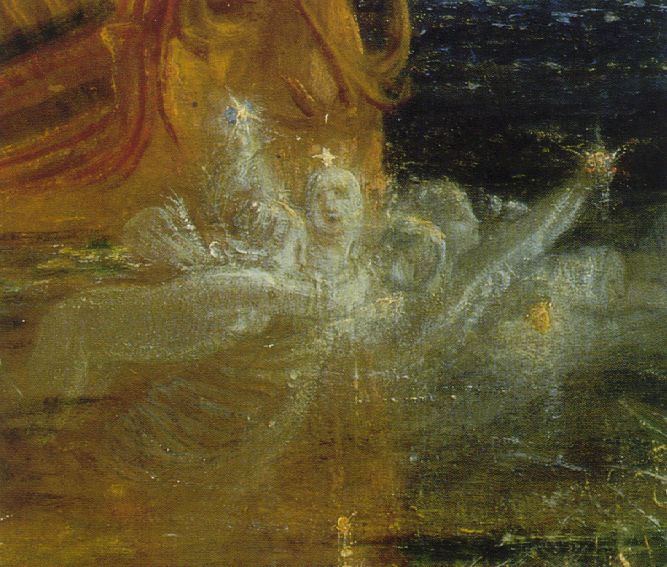Joseph Mallord William Turner’s Ulysses Deriding Polyphemus (1829) exemplifies Homer’s epic poem The Odyssey. In the painting, Odysseus and his crew are shown mocking the cyclops named Polyphemus, whom they encountered during their travels. Turner skillfully uses lighting to create a grotesquely illuminated face that portrays Polyphemus’ vulnerability as Joseph, Odysseus, and his men look on with arrogance.
By responding to the challenges of his themes, Turner manages to combine innovative technique with a mastery of traditional painting to create a distinct visual language for this timeless story. He transforms the conventional thoughts about heroic conquest and celebrates instead an odyssey of suffering and humiliation. Through his detailed brushstrokes and complementary colors, he captures with great detail the grueling confrontation between these traditional combatants.
Turner’s painting of Ulysses Deriding Polyphemus not only provides an insight into ancient literature but also testifies of Turner’s exceptional creativity and skill as one of Britain’s most celebrated painters. He later repeated this same theme in “The Grand Canal Venice” in 1835, which reflected his growing fascination with Venice as one of Italy’s most coveted cities. His incorporation of poetic themes combined with inventive use of light continues to make both paintings timeless classics beloved by many art lovers around the world today.





















